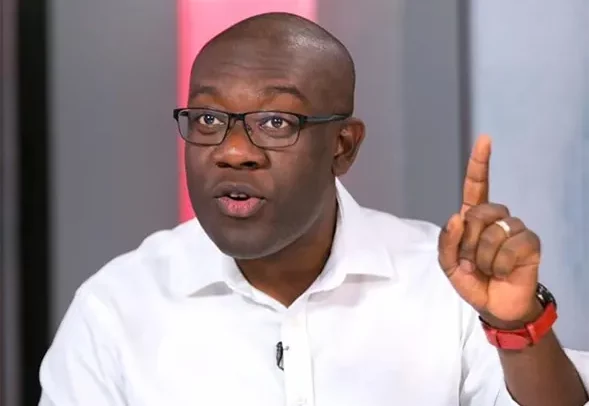Kojo Oppong Nkrumah
The Member of Parliament (MP) for Ofoase-Ayeribi and former Minister for Information, Kojo Oppong Nkrumah, has expressed deep concern over the government’s proposed social media bill, describing it as “dangerous” and an attempt to criminalise free speech in Ghana.
According to the MP, preliminary details of the draft bill suggest it contains intrusive provisions that would allow the state to monitor online activities, track users’ IP addresses, and impose severe penalties for comments deemed offensive by government officials.
Speaking in an interview with the media, Mr. Oppong Nkrumah warned that the proposal, if passed in its current form, could roll back decades of progress the country has made in promoting media freedom and democratic discourse.
“What we are seeing appears to be a draft, and from what I have seen as a former Information Minister, this draft is dangerous,” he said.
“It’s not surprising because the President himself earlier announced that the National Security apparatus would be used to go after people who make social media comments considered unfavourable. Now, his minister seems to be following up with a draft law containing those very provisions,” he added.
The Ofoase-Ayeribi MP argued that the draft legislation would effectively reintroduce criminal sanctions for speech, an approach that many modern democracies have abandoned.
“Over the last few decades, countries have been moving away from criminalising speech. There are enough civil remedies for offensive speech, but not every comment should attract criminal prosecution,” he said.
He recalled that Ghana took a major democratic step forward in 2001 when the Kufuor administration repealed the Criminal Libel and Sedition laws, which had previously been used to jail journalists and silence dissent.
However, Mr. Oppong Nkrumah noted that certain laws, such as the provision on the “publication of false news with intent to cause fear and panic,” remain in the nation’s statute books and continue to be used against journalists and citizens.
“Instead of repealing those remnants of repressive laws, the government is now seeking to enact a new one that will criminalise even more forms of online expression,” the MP warned.
“We are moving backward, not forward. If this law is passed, even a private comment made in a WhatsApp group could be interpreted as offensive and land someone in jail,” the former Information Minister intimated.
He cautioned that such a law would undermine public confidence in government, stifle criticism, and create a chilling effect on social and political debate. “This is a dangerous encroachment on the right to free speech. The government needs to tread cautiously,” he stressed.
The MP urged the Communications Ministry to withdraw the current draft and engage in broader consultations with civil society, media stakeholders, and legal experts before proceeding.
He expressed hope that through dialogue, the government would recognise the dangers inherent in criminalising speech and instead focus on strengthening civil remedies, such as defamation and privacy laws, to address online abuse and misinformation.
“I am hopeful that when consultations start, government will see wisdom in backtracking,” he said and added, “Rather than seeking to criminalise speech further, the few remaining laws that still do so should be repealed. Civil remedies are sufficient to address any harm caused by speech. Criminalisation is not the way to go.”
By Ernest Kofi Adu, Parliament House


